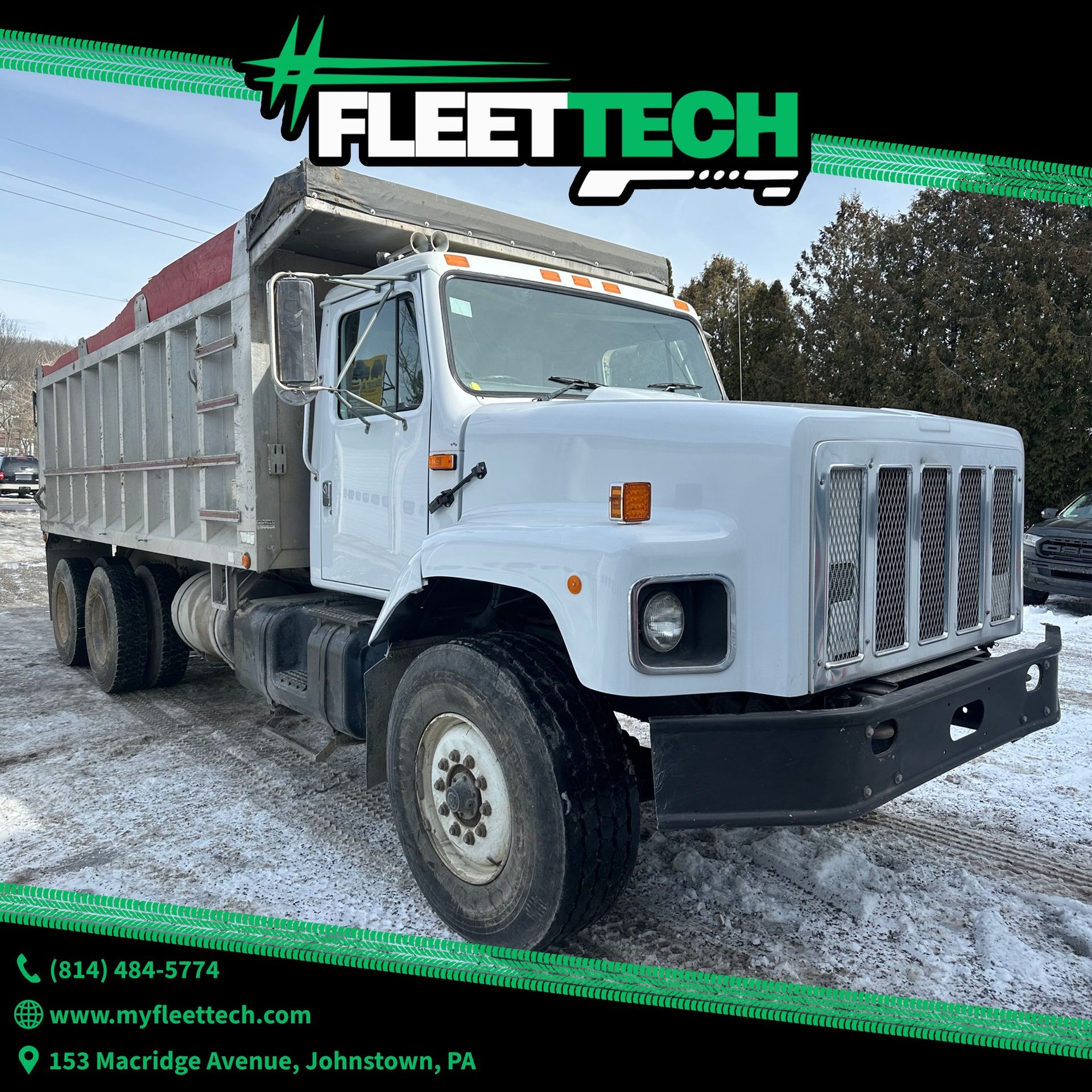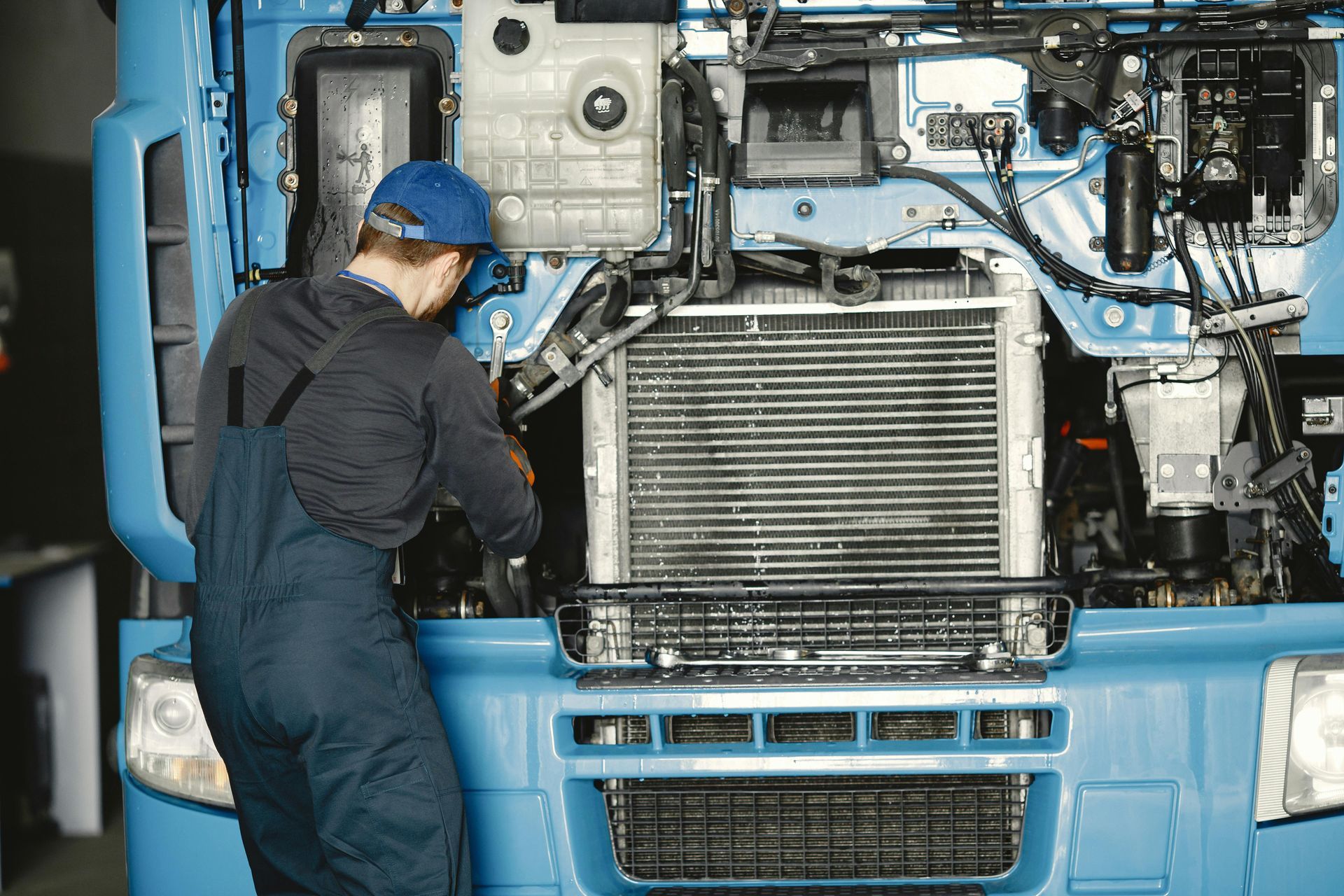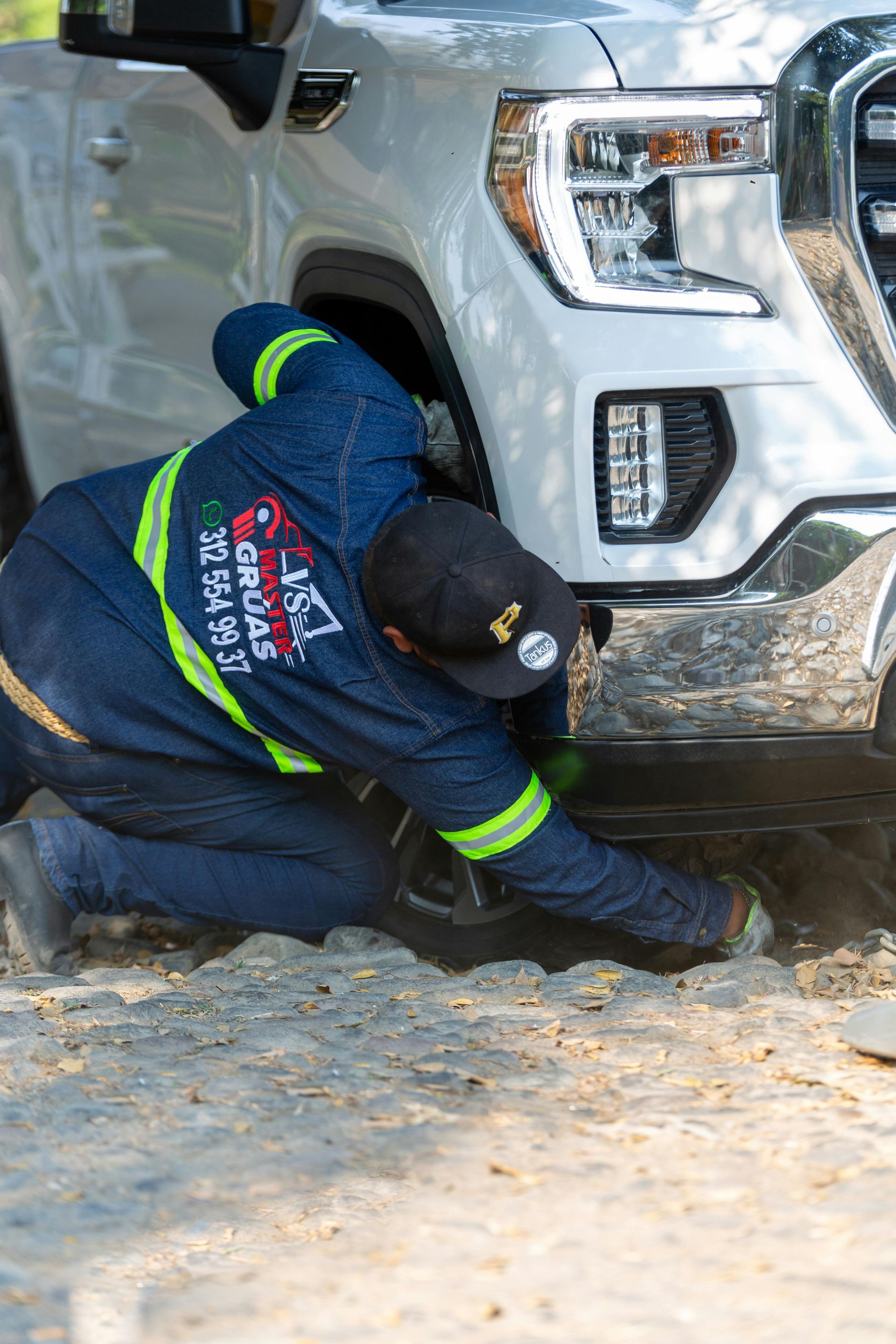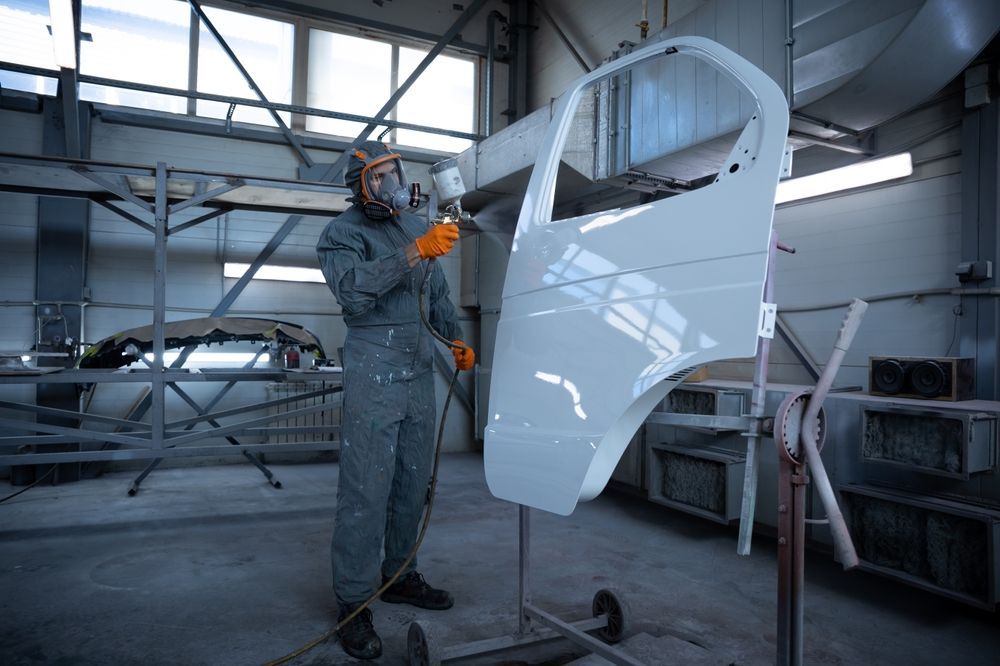Tractor Trailer Roadside Breakdown: Your Step-by-Step Driver's Guide
Every truck driver knows that feeling – you're out on the highway, miles from anywhere, and suddenly, something feels off. A tractor trailer roadside breakdown isn't just a bump in your schedule; it's a real safety concern for you, your cargo, and everyone else on the road. But don't sweat it! This guide is here to walk you through exactly what to do when your commercial vehicle decides to take an unplanned pit stop. We'll cover everything from staying safe to getting help and even preventing future issues, so you can get back to hauling important cargo with confidence.
As the old saying goes, "The only thing worse than a truck breaking down is not knowing what to do when it does." So, let's make sure you're prepared!
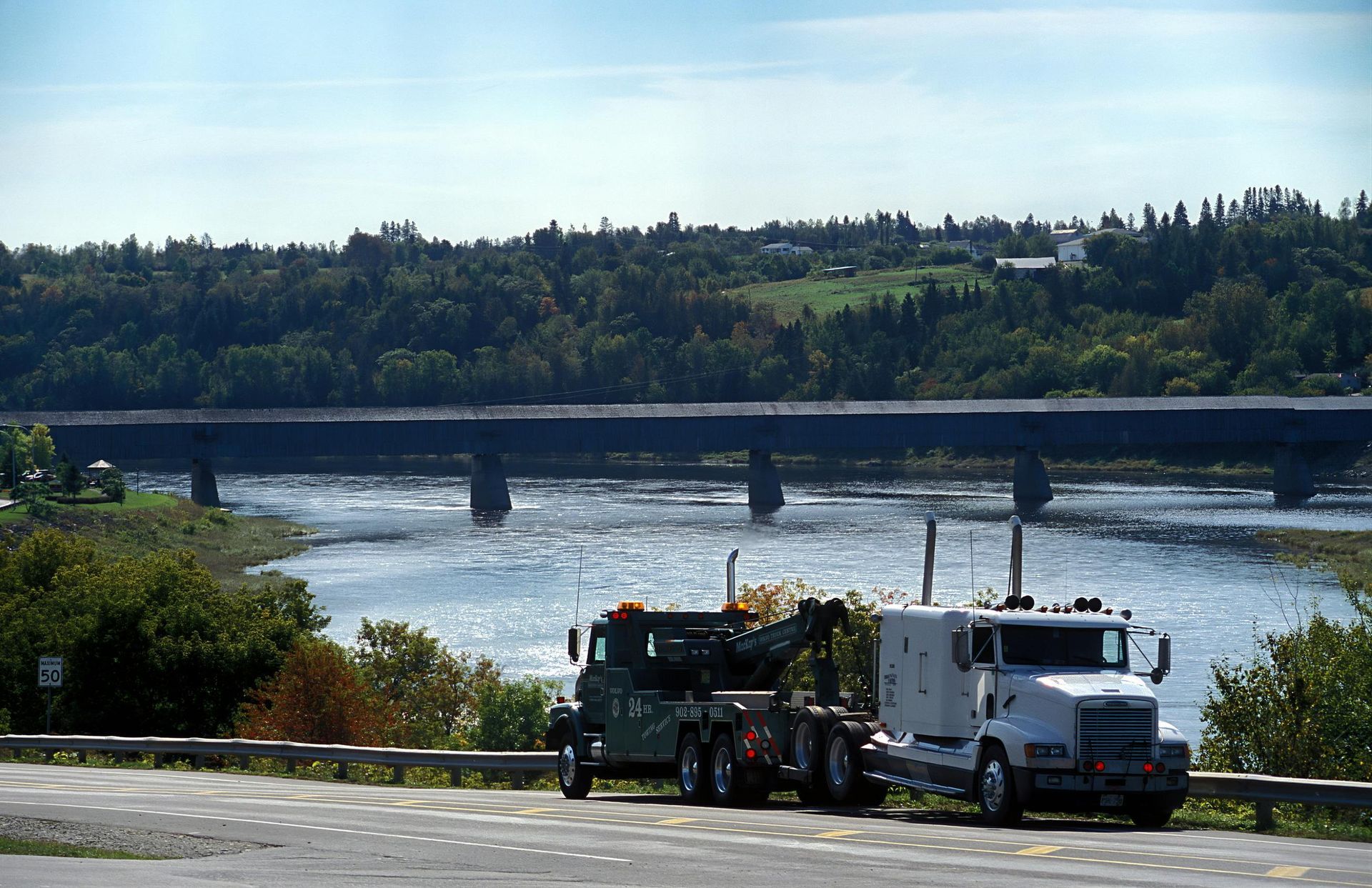
First Things First: Stay Safe and Get Help
When your truck or trailer breaks down, your top priority is safety. Getting your vehicle and yourself out of harm's way is crucial.
How to Safely Pull Over and Secure Your Truck
The moment you notice a problem, start slowing down. Use your turn signals to let other drivers know your intentions and carefully guide your semi truck to the right shoulder or an emergency lane. Once you're off the main road, engage your parking brake and put the transmission in neutral or park.
Important: When you get out, always use the passenger-side door to keep a safe distance from passing traffic. Immediately turn on your hazard lights.
The Federal Motor Carrier Safety Administration (FMCSA) has clear rules about warning devices. According to the FMCSA, specifically 49 CFR 392.22, you must place reflective warning triangles or similar devices behind your stopped commercial vehicle. These devices, which need to be visible from at least 500 feet, help other drivers see you, especially at night or in foggy conditions, and significantly reduce the risk of a collision.
Your Roadside Emergency Kit Essentials
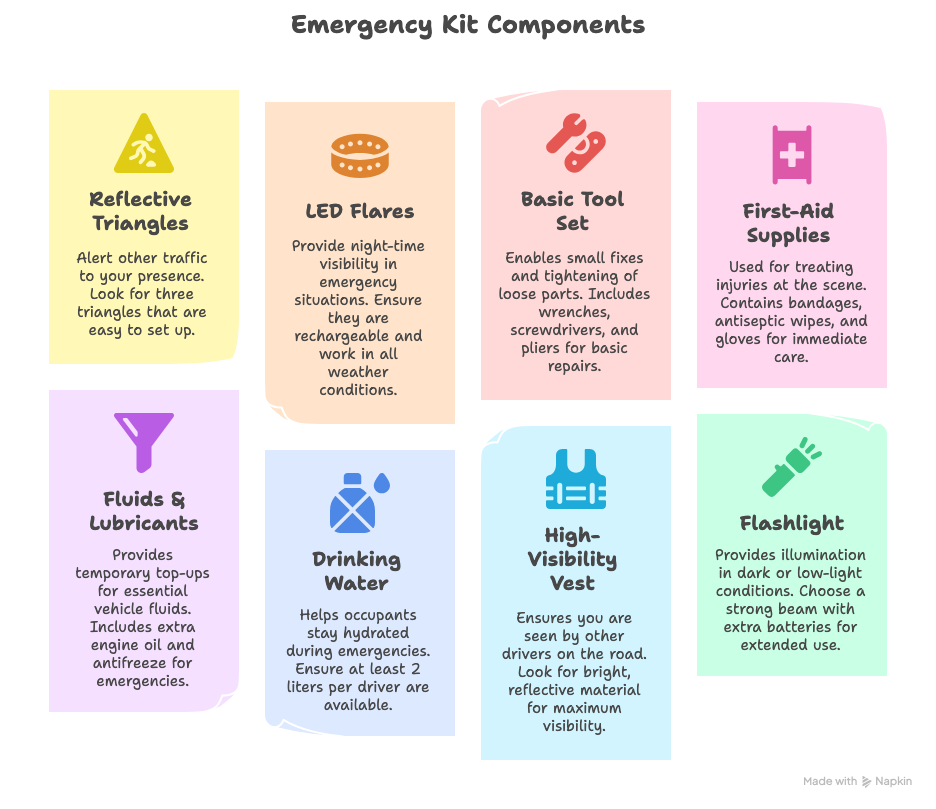
Having a well-stocked emergency kit is a game-changer. Here’s what every driver should carry: This kit helps you respond quickly and gives you peace of mind while waiting for emergency roadside assistance for commercial vehicles.
What's Wrong? Basic Troubleshooting on the Road
Once you're safely pulled over, it's time to play detective. What usually causes a tractor trailer roadside breakdown? According to a report by the National Transportation Safety Board, flat tire issues are among the most frequent causes, followed closely by problems with the diesel engine, brakes, or electrical systems. (National Transportation Safety Board, Highway Accident Report, 2023).
Look for warning lights on your dash, listen for strange noises, sniff for unusual smells (like burning rubber or leaking fluids), or check for smoke. Knowing these clues will help you explain the situation to your dispatcher and the repair team. For example, a slow leak might just be a flat tire, while smoke from the engine means something more serious.
When to Call for Professional Help
If your basic checks don't pinpoint an easy fix, or if you're dealing with a major issue like engine failure, brake problems, or any risk of fire, it's time to call for heavy-duty roadside truck repair. Don't try to be a hero when safety is at stake!
When you call for help, whether it's your dispatcher or a 24 hour truck roadside assistance near me service, be ready to provide:
- Your exact location: GPS coordinates or mile markers are best.
- What's wrong: A detailed but clear description (e.g., "front driver-side flat tire," "engine overheating," "no power to lights").
- Your cargo: Type and weight.
- Estimated delay: How long you think you’ll be stopped.
This information helps your fleet manager make smart decisions and helps the repair crew arrive with the right tools.
Getting the Right Roadside Assistance
Finding reliable semi truck roadside assistance is key. Look for providers that specialize in heavy-duty trucks, offer 24/7 service, and can provide mobile truck repair in your area. Ask about their estimated arrival time and what kind of equipment they use.
If your breakdown is causing an immediate danger—like blocking traffic lanes, an accident has occurred, there’s a hazardous material spill, or someone is injured—call 911 immediately. Police reports can be vital for insurance claims and legal records.
Waiting it Out: Staying Safe and Documenting Everything
While you wait for help, staying safe and keeping good records are important.
Safe Waiting Practices
- If the shoulder is narrow or traffic is heavy, stay inside your cab with your seatbelt fastened.
- Otherwise, stand well behind any barrier, away from moving vehicles.
- Keep your hazard lights on, and if it's dark, use your high-visibility vest and flashlight to signal to approaching vehicles.
What to Document
Take pictures of everything: your truck's position, warning devices, road conditions, and any visible damage. Write down the date, time, exact location, and details of the problem. Keep all receipts for any purchases made at the scene, and note the names of anyone who comes to help. This detailed information will be invaluable for your logistics team, insurance claims, and maintenance records.
Preventative Maintenance: Your Best Defense Against Breakdowns
The best way to handle a tractor trailer roadside breakdown is to prevent it in the first place! Regular maintenance isn't just about avoiding roadside emergencies; it also makes your truck last longer, improves fuel efficiency, and saves you money in the long run. Learn more about preventing issues with our vehicle inspection services at https://www.myfleettech.com/vehicle-inspections.
Your Essential Pre-Trip and Post-Trip Inspection Checklist
Before and after every trip, run through this quick checklist:
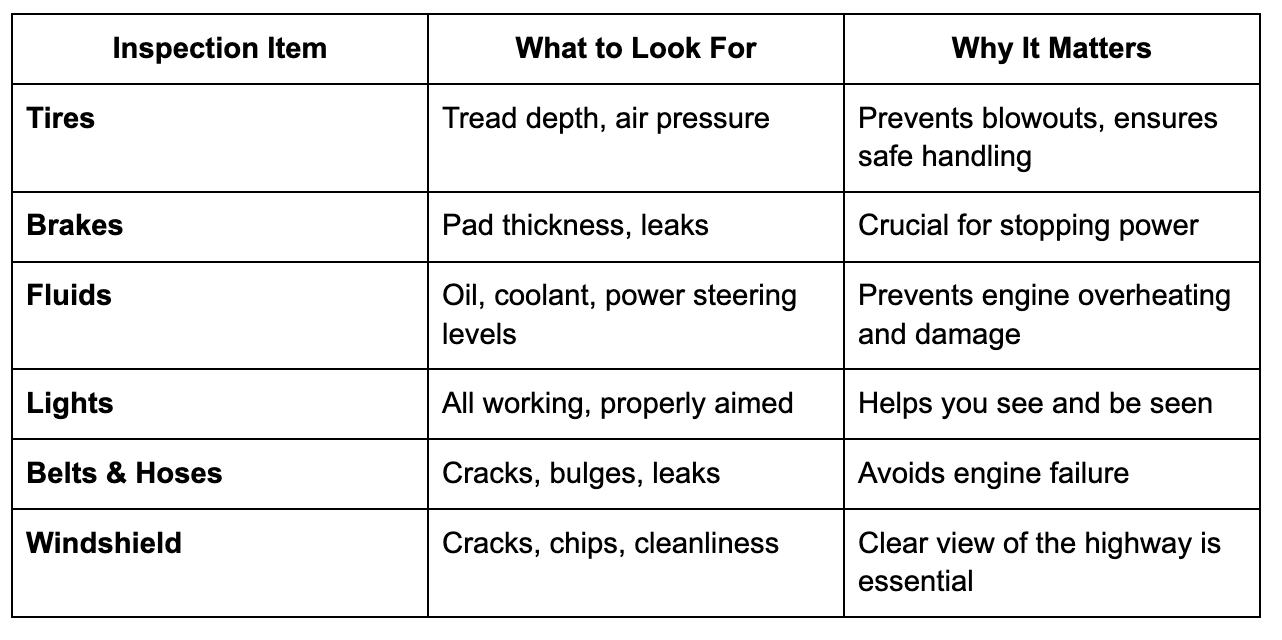
This simple routine helps catch small issues before they become major breakdowns.
After Help Arrives and Beyond
Once the mobile truck repair technician or tow operator arrives, work with them. Explain what happened, share your notes and photos, and agree on the repairs before they start. After the repair, collect all service receipts and technician reports. Make sure to update your maintenance logs and schedule any follow-up service. This helps your fleet stay on top of repairs and prevents the same problem from recurring.
Frequently Asked Questions About Truck Breakdowns
Q: How do Hours of Service (HOS) rules apply during a breakdown?
A: Delays from a breakdown still count as "on-duty" time. You can log "interruption-of-driving" if repairs take longer than typical loading/unloading, but accurate logging is key to avoid HOS violations.
Q: What about insurance coverage for a roadside breakdown?
A: Your commercial auto insurance typically covers towing, on-site labor, and damage. Notify your insurance company immediately, document everything, and get police or service reports to simplify the claim process.
Q: Can technology really help during a breakdown?
A: Absolutely! Modern telematics systems can automatically report engine trouble codes and GPS location, often triggering service requests automatically. Mobile apps also let you share photos and videos, helping mechanics diagnose problems faster.
Stay Prepared, Stay Safe!
Staying safe and communicating clearly during a tractor trailer roadside breakdown is vital for both you and your cargo. By reacting quickly, troubleshooting effectively, and performing regular inspection and maintenance, you can minimize downtime and keep your delivery promises. Remember, using modern technology and good reporting practices makes everything smoother for future repairs.
For reliable truck and trailer repairs and to learn more about our comprehensive services, visit Fleet Tech today!
